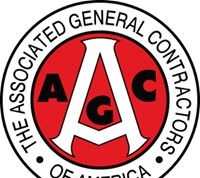The Federal Housing Administration is one of the most comprehensive mortgage insurance in the world, offering its services in the United States. The FHA insures these loans as long as they are provided by their approved lenders on multi and single-family units.
Today, the insurance agency insures tens of millions of property in the U.S and its territories since it was established in 1934. Specifically, the loan allows borrowers to finance their homes with relatively low down payments and mostly targets first-time applicants.
The agency is the best option for first-time applicants because most of them might not have saved enough for a large mortgage down payment. As a result, the loans also benefit those who may have suffered foreclosures or bankruptcy.
What Are The FHA Loan Qualifications?
So, what are the FHA loan qualifications? To qualify for a mortgage loan with the FHA, you must have at least a 580 score at FICO that makes you eligible for a lower down payment advantage. The current set down payment by FHA is at least 3.5%.
So if your score is below the given threshold, your down payment rate is revised upwards to around 10% hence the need to keep your credit ratings in good standings.
It is also worth noting that the FHA credit requirements go beyond your FICO score. Instead, they also examine your eligibility based on your foreclosures, bankruptcies, payment history, and extenuating circumstances that may affect your timely payments.
What Is The FICO Score?
FICO stands for Fair Isaac Corporation; a credit company established in 1956 and used credit scores to determine credit risk among consumers. The fixture created by the company has been widely in consumer lending in the U.S to determine a person’s eligibility for loans.
So the score itself is a number that represents a borrower’s potential for creditworthiness. The score is determined after consumer credit files are analyzed from different bureaus.
In other words, your FICO score is key in determining your FHA loan qualifications. It also determines your likelihood of repaying your loan. So the higher the score, the better your chances of getting a friendly interest rate on your loan.
What Can Negatively Affect My Loan?
Lack Of Credit History – It would take a longer process for your lender to acquire a traditional credit or develop one through other means if you don’t have an established history.
Federal Debt – It may include the judgments and collections debts you may have accrued before applying for the loan. According to the FHA rules, such debts should be resolved before closing.
Bankruptcy – Although it does not disqualify you from accessing the FHA loans, you must wait at least two years for you to incur a new credit obligation or reestablish good credit
The Federal Housing administration offers billions to loan applicants in the form of mortgages to ensure that they afford better housing in the country. Notably, the agency makes the necessary examinations to applicants’ details to ensure that they don’t lose money and end up litigating applicants for defaults.













